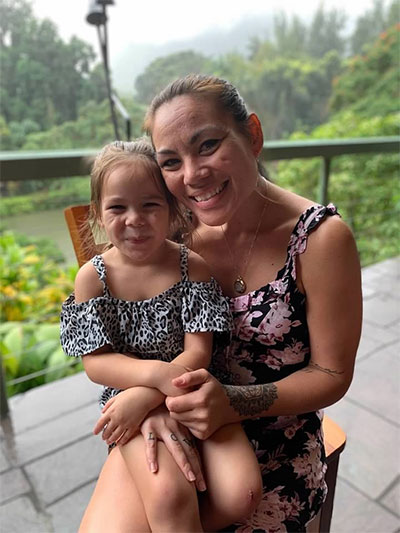By Louis Martin, RCAC staff writer

Even during the best of times, Hawaii Community Assets (HCA) faces an uphill battle to provide housing counseling for its service area. Jeff Gilbreath, HCA’s director of lending and development, said the cost of living in Hawaii is consistently among the highest in the world, making economic mobility for would-be homeowners seem out of reach.
HCA is the largest U.S. Department of Housing and Urban Development (HUD) counseling agency in the state. It provides a continuum of housing counseling services to help clients rent or purchase homes or avoid foreclosures and evictions. Founded in 2000, HCA expanded to provide grants and loans as well. With the advent of a global pandemic, HCA’s lending services have become a new centerpiece of operations in this new reality.
“There is a huge percentage of our community who have lost their jobs or had their wages reduced. We’re so reliant on tourism and the service industry. What we’re seeing on the ground is major delays in unemployment insurance. There’s people that applied as far back as April, got approved, and still have not been paid,” said Gilbreath in July.
In early August the state of Hawaii reported that more than 10,000 claims had not been processed. Gilbreath said having no income for several months puts many people in desperate situations, and many are forced to use payday lenders. And, he said, predatory lenders will almost certainly put borrowers into a financial tailspin. These lenders ask for as much as 460 percent interest on loans to people who are unsure when their unemployment funds will be paid.
With that in mind, HCA sprang into action, drawing on a coalition of private and public funders to launch an emergency lending program. It began packaging $5,000 single-payment loans with no interest and no payments required for six months. Even better, the loans are forgivable, but if paid off in full, are rolled over into a line of credit for future housing assistance. Many of the funds raised from investors were reserved strictly for lending capital. HCA still faced potentially not being able to fund the organization’s counseling services.
RCAC received Wells Fargo funding in May, which it passed through to HCA just in time. HCA processed emergency loans, attaching mandatory housing counseling services to each one. Gilbreath said that this piece was essential to help borrowers make long-term financial plans.
“Five thousand dollars isn’t much money when you’re talking about living on that for months. So, we help them create an emergency household budget and action plan. Our counselors talk to them about what other resources are out there: food banks, Medicaid, SNAP applications,” Gilbreath said.
Lei Agcaoili was one of the counseling recipients. She’s a single mother who moved from O‘ahu to Kaua‘i before the COVID-19 pandemic, where she had few friends and no family so her daughter could be closer to her dad. Housing was expensive, and so was food, transportation and childcare. It was hard to save anything from week to week, but she was proud of what she had accomplished.
“We always had a roof and food,” said Agcaoili, who prizes independence and hard work. “I’ve always ensured that I create my own security and prosperity.”
One of the things she values most is being able to provide a peaceful, loving and stable environment for her daughter, now six. “Kids thrive on routines and stability. I think we all do, no matter our age.”
When COVID-19 hit, the restaurant where Agcaoili worked was forced to close its doors, leaving her little prospect of finding other employment any time soon. After learning about HCA’s loans from her local mayor’s office, Agcaoili secured a loan that for her rent, utilities and gas for the next three months. Initially she was one of the thousands with unpaid claims, but she has since received her unemployment benefits. Her initial re-payments to HCA will be a little more than $25.
Gilbreath said Agcaoili’s story is a bright spot. She is one of the nearly 160 families HCA assisted to stay in their homes from May through July using both housing counseling and emergency loans. But the sobering reality is that only one in four applicants can receive emergency loans from HCA at its current funding level. In the meantime, Gilbreath said Wells Fargo funds have allowed the organization to deliver critical counseling services to help stabilize families until additional financial resources can find their way to Hawaii households.
